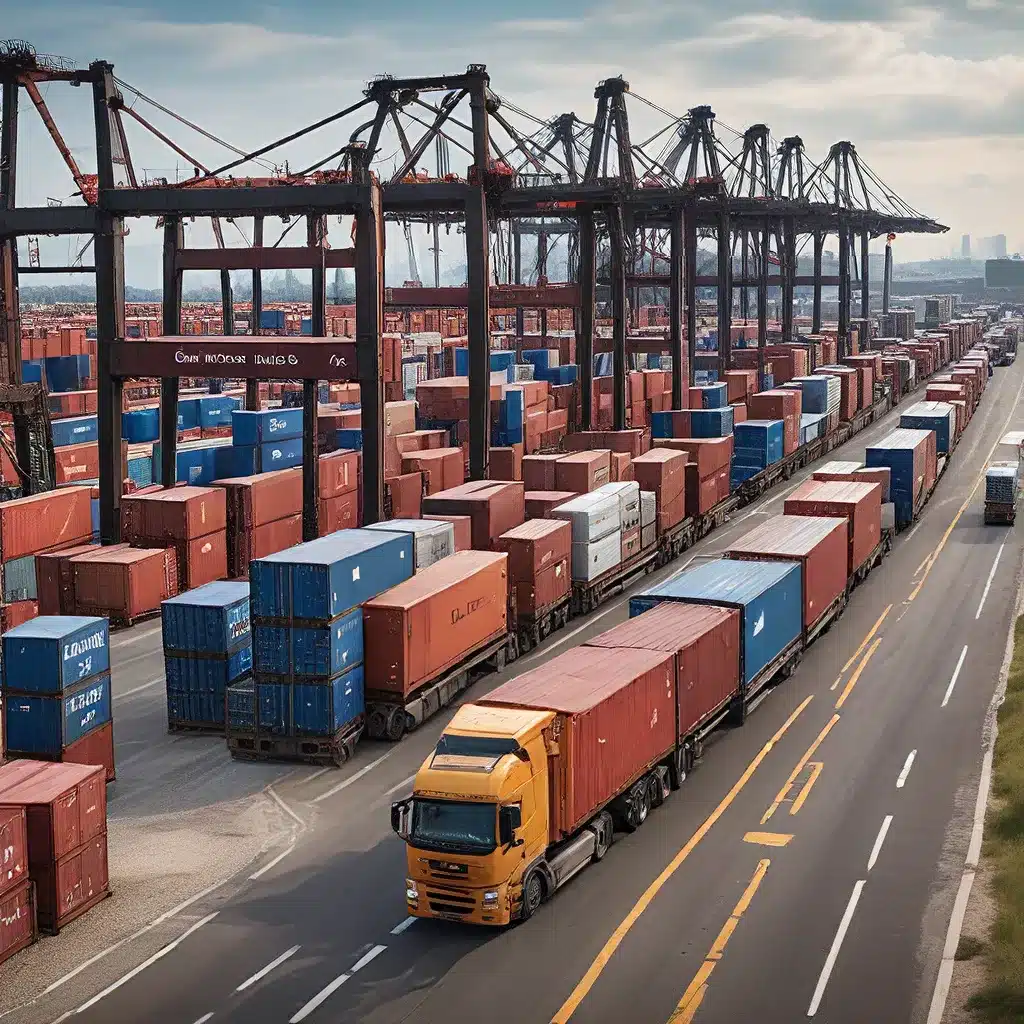
The Internet of Things (IoT) is revolutionizing the logistics industry, transforming how organizations manage their supply chains and deliver goods to customers. By integrating sensor networks, real-time data, and advanced analytics, IoT is enabling logistics companies to achieve unprecedented levels of visibility, efficiency, and responsiveness.
The Challenges Facing the Logistics Industry
The modern logistics industry faces several critical challenges that impact its ability to operate efficiently and meet customer demands. A lack of real-time visibility into inventory levels, shipment locations, and asset utilization is a significant pain point. Manual, paper-based processes make it difficult to track assets and obtain timely data on shipments, leading to bottlenecks that reduce overall productivity.
Furthermore, supply chain disruptions can easily throw off delivery timelines, leaving logistics providers scrambling to adjust. Inefficient tracking processes and the inability to proactively address issues result in higher costs, reduced customer satisfaction, and missed opportunities.
Transforming Logistics with IoT
IoT solutions offer a powerful remedy to the challenges facing the logistics industry. By integrating sensors, connectivity, and data analytics, IoT technologies provide the real-time visibility and actionable insights that logistics companies need to optimize their operations.
IoT-enabled solutions can track the location, condition, and status of assets such as trucks, containers, and pallets, providing logistics managers with a comprehensive, end-to-end view of their supply chain. GPS tracking, RFID tags, and iBeacons enable precise monitoring of shipments, allowing for dynamic route optimization, improved delivery estimates, and proactive issue resolution.
Moreover, sensor data on temperature, humidity, light, and pressure can help prevent cargo spoilage and ensure the integrity of sensitive shipments. Fleet management software can further enhance logistics operations by optimizing routing, monitoring fuel usage, and enabling predictive maintenance to minimize downtime.
Enhancing Visibility and Efficiency
By leveraging IoT technologies, logistics companies can boost asset utilization, automate processes, and reduce delays and shrinkage. Warehouse management systems that incorporate smart shelves, robotic pickers, and scanners can automate inventory tracking and improve the efficiency of order fulfillment.
The real-time data collected through IoT sensors and devices enables data-driven decision-making, allowing logistics managers to identify and resolve inefficiencies, optimize operations, and enhance overall supply chain performance. IoT-powered logistics transforms the industry by providing the visibility, tracking capabilities, and optimization that were previously unattainable.
Unlocking the Potential of IoT in Logistics
As the IoT market continues to grow, the impact on the logistics industry is poised to be profound. GPS tracking will become standard for all vehicles, containers, and packages, providing real-time visibility into shipment locations and enabling dynamic routing and proactive issue resolution.
Warehouses will become increasingly automated through the integration of IoT technologies, including smart sensors, robotics, wearables, and automated storage and retrieval systems. This will significantly improve warehouse efficiency, inventory management, and order fulfillment.
The massive amounts of data collected through IoT devices will feed into predictive analytics and machine learning models, empowering logistics companies to shift from reactive to proactive supply chain management. For example, potential equipment failures can be predicted before they occur, allowing for preventive maintenance and minimizing downtime.
Embracing IoT for Competitive Advantage
The potential of IoT to transform logistics operations is immense. By integrating smart, connected devices into their processes, logistics companies can gain real-time insights into their supply chain assets and shipments, leading to reduced costs, improved efficiency, and better customer service.
IoT adoption is no longer an option but a necessity for logistics companies looking to stay competitive in today’s dynamic marketplace. While the upfront investment may seem challenging, the long-term benefits will far outweigh the costs.
To get started with IoT in logistics, companies should follow agile methodologies, adopt cloud-enabled DevOps practices, and implement a proper code branching strategy, CICD pipelines, and Infrastructure as Code (IaC). This will speed up development, ensure reliable deployments, and improve software quality while maintaining team well-being.
The future of logistics is sensor-enabled and data-driven. By embracing the Internet of Things, logistics companies can revolutionize their operations, enhance visibility and efficiency, and deliver unparalleled customer service in the ever-evolving global supply chain landscape.